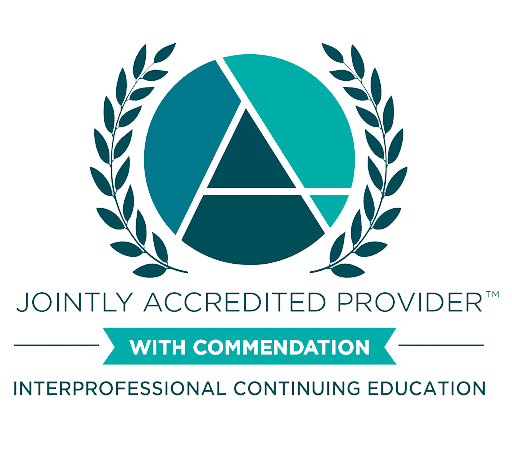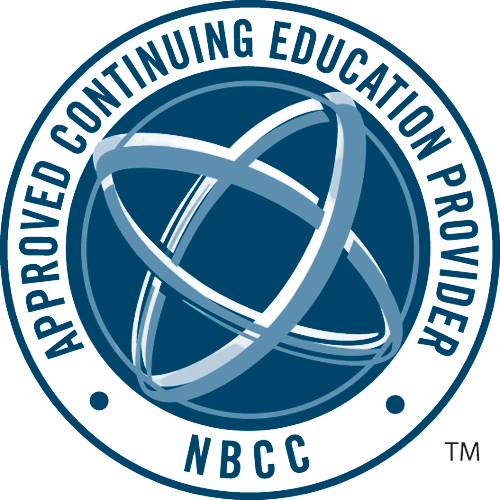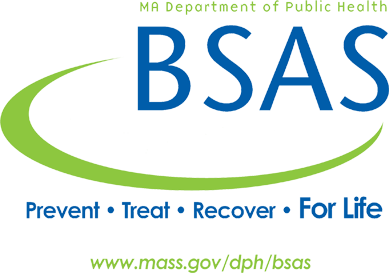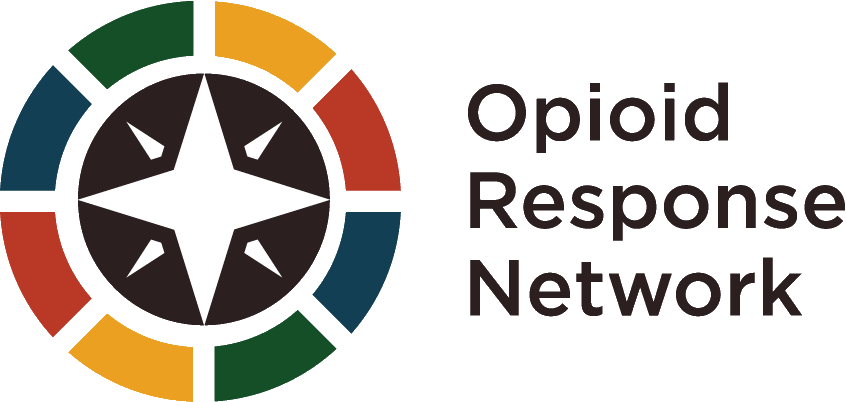Contact:
Grayken Center for Addiction TTA
info@addictiontraining.org
– Minimize
Jump to event:
High-Intensity Drinking: The Rising Threat of a Dangerous Trend
Outpatient Management of Alcohol Withdrawal Syndrome
Enhancing Alcohol Use Disorder (AUD) Treatment with Medications for AUD (MAUD)
Public Health Strategies to Prevent Excessive Alcohol Consumption and Related Harms
+ Show events
Past events
High-Intensity Drinking: The Rising Threat of a Dangerous Trend
 Friday, 8/16/24, 12:00 PM – 12:30 PM ET
Friday, 8/16/24, 12:00 PM – 12:30 PM ET
 Virtual event via Zoom
Virtual event via Zoom
 Credits available
Credits available
High-intensity drinking (HID), defined by the National Institute on Alcohol Abuse and Alcoholism (NIAAA) as consuming alcohol at levels that are 2-3x more than the gender-specific binge drinking thresholds, is an emerging and dangerous public health concern. This training will provide an overview of what constitutes high-intensity drinking, as well as current epidemiology and the risks of HID consumption patterns. Risk factors associated with high-intensity drinking will be explored, including age, peer influence, and environment. This session will also provide practical, evidence-based strategies to promote healthier alcohol consumption patterns to reduce high-intensity drinking.
Show details
Virtual meeting
Via Zoom
Description
High-intensity drinking (HID), defined by the National Institute on Alcohol Abuse and Alcoholism (NIAAA) as consuming alcohol at levels that are 2-3x more than the gender-specific binge drinking thresholds, is an emerging and dangerous public health concern. This training will provide an overview of what constitutes high-intensity drinking, as well as current epidemiology and the risks of HID consumption patterns. Risk factors associated with high-intensity drinking will be explored, including age, peer influence, and environment. This session will also provide practical, evidence-based strategies to promote healthier alcohol consumption patterns to reduce high-intensity drinking.
Intended audience
Clinical staff and non-clinicians.
Speakers
Brittany L. Carney, DNP, FNP-BC (she/her)Brittany (Britt) is a clinical nurse educator for Boston Medical Center's Grayken Center for Addiction Training and Technical Assistance. After starting her professional career at Boston Medical Center, she is thrilled to return to her roots supporting patients with substance use and caring for adolescent patients. She is a doctorally prepared, board-certified family nurse practitioner. Her passion is caring for youth and families, especially those with substance use disorder. Her clinical interests include adolescents/young adults, co-occurring mental health disorders, optimizing safety/overdose prevention, and improving continuity of care among DCF/DYS-involved youth. She has over a decade of experience working in addiction medicine from clinical operations to education/training. She pursued her DNP degree to continue to work to bring best practices into clinical care. Britt has published on various topics, including stigma for youth, caring for adolescents with substance use disorders and the role of addiction training for providers. She has also co-authored a book chapter on caring for adolescents with substance use. She is a member of Sigma Theta Tau International and AMERSA (The Association for Multidisciplinary Education and Research in Substance use and Addiction). She received her Doctor in Nursing Practice (DNP) and Master's in Nursing degrees from the University of Massachusetts, Graduate School of Nursing. She also has a Master's in Medical Science from Boston University Chobanian & Avedisian School of Medicine.
Andrea Jodat, DNP, FNP-BC, CARN-AP (she/her)Andrea is a clinical nurse educator for Boston Medical Center's Grayken Center for Addiction Training and Technical Assistance, where she contributes to the development and delivery of continuing education programs, peer-reviewed publications, evidence-based clinical guidelines, and other resources for providers supporting patients with substance use disorders. She is also a family nurse practitioner at Boston Medical Center, an assistant professor of medicine at the Boston University Chobanian & Avedisian School of Medicine, and conducts research in the use of telehealth and coordinated care for persons with opioid use disorder and depression. Andrea is an active member of the Boston University Medical Group Advanced Practice Provider Council and the Massachusetts Coalition of Nurse Practitioners. Andrea has worked with vulnerable populations for over 10 years including managing substance use disorders and overall healthcare for persons experiencing homelessness with the Boston Health Care for the Homeless Program. She is a term lecturer and preceptor for nurse practitioner students at the Massachusetts General Hospital Institute of Health Professions (IHP) and received her Doctor in Nursing Practice (DNP) degree from the IHP in 2018. She also holds certification as a Certified Addiction Registered Nurse - Advanced Practice (CARN-AP) through the Addictions Nursing Certification Board (ANCB).
Objectives
Following this training, participants will have the knowledge necessary to:
- Define high-intensity drinking and its associated risks.
- Identify at least 3 risk factors associated with high-intensity drinking.
- Discuss 2 harm reduction strategies to reduce high-intensity drinking.
Sponsored by
Boston Medical Center Grayken Center for Addiction TTA, Department of Public Health, Bureau of Substance Addiction Services (DPH/BSAS)
Funding for out of state attendees is provided by the Opioid Response Network (ORN).
Funding for this initiative was made possible (in part) by grant no. 1H79TI083343 from SAMHSA. The views expressed in written conference materials or publications and by speakers and moderators do not necessarily reflect the official policies of the Department of Health and Human Services; nor does mention of trade names, commercial practices, or organizations imply endorsement by the U.S. Government.
Accreditation information
REQUIREMENTS for credit
- Register for training.
- Arrive/log into the Zoom meeting with the same email address associated with your addictiontraining.org user account no more than 10 minutes after designated start time for program.
- Identify yourself by typing your full name, ensuring your zoom name matches that used to register for training (or you cannot be marked on attendance).
- Be present through the end of the activity (i.e. until the designated end time of training).
- Complete evaluation within 2 weeks of program completion.
Please note this policy is strictly enforced for accreditation purposes. Participants will forfeit collection of credit and certificates of completion if more than 10 minutes of the training is missed.
Joint Accreditation Statement for CME, Nursing
 In support of improving patient care, Boston University Chobanian & Avedisian School of Medicine is jointly accredited by the Accreditation Council for Continuing Medical Education (ACCME), the Accreditation Council for Pharmacy Education (ACPE), and the American Nurses Credentialing Center (ANCC), to provide continuing education for the healthcare team.
In support of improving patient care, Boston University Chobanian & Avedisian School of Medicine is jointly accredited by the Accreditation Council for Continuing Medical Education (ACCME), the Accreditation Council for Pharmacy Education (ACPE), and the American Nurses Credentialing Center (ANCC), to provide continuing education for the healthcare team.
CME
Boston University Chobanian & Avedisian School of Medicine designates this live activity for a maximum of 0.50 AMA PRA Category 1 Credit(s)™. Physicians should claim only the credit commensurate with the extent of their participation in the activity.
Nursing
Nursing Contact Hours: 0.50 contact hours, of which 0.00 are eligible for pharmacology credit.
LMHC
 BMC Grayken Center of Addiction TTA has been approved by NBCC as an Approved Continuing Education Provider, ACEP No. 7188. Programs that do not qualify for NBCC credit are clearly identified. BMC Grayken Center of Addiction TTA is solely responsible for all aspects of the programs. For this program, 0.50 contact hours will be offered to participants who attend the training and complete the evaluation.
BMC Grayken Center of Addiction TTA has been approved by NBCC as an Approved Continuing Education Provider, ACEP No. 7188. Programs that do not qualify for NBCC credit are clearly identified. BMC Grayken Center of Addiction TTA is solely responsible for all aspects of the programs. For this program, 0.50 contact hours will be offered to participants who attend the training and complete the evaluation.
LADC/CADC & Recovery Coach
Boston Medical Center Grayken Center for Addiction Training and Technical Assistance is approved by the Massachusetts Department of Public Health, Bureau of Substance Addiction Services (DPH/BSAS) to award LADC/CADC and Recovery Coaches who complete this trainings 0.50 continuing education credits.
Community Health Worker
Boston Medical Center Grayken Center for Addiction Training and Technical Assistance is approved by the Massachusetts Department of Public Health, Board of Community Health Workers to award community health workers who complete this training 0.50 continuing education credits.
Disclaimer
Continuing education (CE) requirements vary by license and jurisdiction. When requesting continuing education credits, please ensure you are following the rules and regulations determined by the board regulating your license. Boston Medical Center Grayken Center for Addiction TTA does not oversee adherence to licensing requirements and regulations.
THIS CONTINUING EDUCATION PROGRAM IS INTENDED SOLELY FOR EDUCATIONAL PURPOSES FOR QUALIFIED HEALTHCARE PROFESSIONALS. IN NO EVENT SHALL BOSTON UNIVERSITY BE LIABLE FOR ANY DECISION MADE OR ACTION TAKEN IN RELIANCE ON THE INFORMATION CONTAINED IN THE PROGRAM. IN NO EVENT SHOULD THE INFORMATION CONTAINED IN THE PROGRAM BE USED AS A SUBSTITUTE FOR PROFESSIONAL CARE. NO PHYSICIAN-PATIENT RELATIONSHIP IS BEING ESTABLISHED. IN NO EVENT SHOULD INFORMATION IN THE MATERIALS REGARDING LAWS, REGULATIONS, OR LEGAL LIABILITY BE CONSIDERED LEGAL ADVICE OR USED AS A SUBSTITUTE FOR CONSULTING WITH AN ATTORNEY.
Hide details
Outpatient Management of Alcohol Withdrawal Syndrome
 Friday, 8/23/24, 12:00 PM – 12:30 PM ET
Friday, 8/23/24, 12:00 PM – 12:30 PM ET
 Virtual event via Zoom
Virtual event via Zoom
 Credits available
Credits available
Many individuals experiencing mild alcohol withdrawal syndrome can be safely and successfully managed in the outpatient setting, allowing less interruption to one’s professional, family, and social obligations. This training will provide an overview of alcohol withdrawal assessment and management in an outpatient setting. Participants will be able to identify the signs and symptoms of alcohol withdrawal and appropriate candidates for outpatient withdrawal management. Validated tools to assess alcohol withdrawal will be reviewed and evidence-based medication management for outpatient alcohol withdrawal will be discussed.
Show details
Virtual meeting
Via Zoom
Description
Many individuals experiencing mild alcohol withdrawal syndrome can be safely and successfully managed in the outpatient setting, allowing less interruption to one’s professional, family, and social obligations. This training will provide an overview of alcohol withdrawal assessment and management in an outpatient setting. Participants will be able to identify the signs and symptoms of alcohol withdrawal and appropriate candidates for outpatient withdrawal management. Validated tools to assess alcohol withdrawal will be reviewed and evidence-based medication management for outpatient alcohol withdrawal will be discussed.
Intended audience
Clinical staff, and non-clinicians.
Speakers
Amy Fitzpatrick, MDAmy Fitzpatrick is an assistant professor of Medicine at Boston University School of Medicine and a primary care physician in the Women's Health Group at Boston Medical Center. She also does clinical research in the Clinical Addiction Research & Education Unit at Boston University School of Medicine/Boston Medical Center. In her role at Boston Medical Center, she works in the Office-Based Addiction Treatment (OBAT) clinic and attends on the Inpatient Addiction Consult Service for four weeks per year. Dr. Fitzpatrick's other interests include medical student and resident education. She is a preceptor for internal medicine residents in both the inpatient and outpatient settings. She is board-certified in both internal medicine and addiction medicine. She serves as an expert consultant for MCSTAP, the Massachusetts Consultation Service for the Treatment of Addiction and Pain which provides support to Massachusetts clinicians in increasing their capacity for, and comfort in, using evidence-based practices in screening for, diagnosing, treating, and managing the care of all patients with chronic pain, substance use disorders, or both.
Objectives
- Recognize the signs and symptoms of alcohol withdrawal syndrome.
- Identify appropriate candidates for outpatient management of alcohol withdrawal syndrome.
- List at least 2 medications utilized in outpatient management of alcohol withdrawal syndrome.
Sponsored by
Boston Medical Center Grayken Center for Addiction TTA, Department of Public Health, Bureau of Substance Addiction Services (DPH/BSAS)
Funding for out of state attendees is provided by the Opioid Response Network (ORN).
Funding for this initiative was made possible (in part) by grant no. 1H79TI083343 from SAMHSA. The views expressed in written conference materials or publications and by speakers and moderators do not necessarily reflect the official policies of the Department of Health and Human Services; nor does mention of trade names, commercial practices, or organizations imply endorsement by the U.S. Government.
Accreditation information
REQUIREMENTS for credit
- Register for training.
- Arrive/log into the Zoom meeting with the same email address associated with your addictiontraining.org user account no more than 10 minutes after designated start time for program.
- Identify yourself by typing your full name, ensuring your zoom name matches that used to register for training (or you cannot be marked on attendance).
- Be present through the end of the activity (i.e. until the designated end time of training).
- Complete evaluation within 2 weeks of program completion.
Please note this policy is strictly enforced for accreditation purposes. Participants will forfeit collection of credit and certificates of completion if more than 10 minutes of the training is missed.
Joint Accreditation Statement for CME and Nursing
 In support of improving patient care, Boston University Chobanian & Avedisian School of Medicine is jointly accredited by the Accreditation Council for Continuing Medical Education (ACCME), the Accreditation Council for Pharmacy Education (ACPE), and the American Nurses Credentialing Center (ANCC), to provide continuing education for the healthcare team.
In support of improving patient care, Boston University Chobanian & Avedisian School of Medicine is jointly accredited by the Accreditation Council for Continuing Medical Education (ACCME), the Accreditation Council for Pharmacy Education (ACPE), and the American Nurses Credentialing Center (ANCC), to provide continuing education for the healthcare team.
CME
Boston University Chobanian & Avedisian School of Medicine designates this live activity for a maximum of 0.50 AMA PRA Category 1 Credit(s)™. Physicians should claim only the credit commensurate with the extent of their participation in the activity.
Nursing
Nursing Contact Hours: 0.50 contact hours, of which 0.25 are eligible for pharmacology credit.
LMHC
 BMC Grayken Center of Addiction TTA has been approved by NBCC as an Approved Continuing Education Provider, ACEP No. 7188. Programs that do not qualify for NBCC credit are clearly identified. BMC Grayken Center of Addiction TTA is solely responsible for all aspects of the programs. For this program, 0.50 contact hours will be offered to participants who attend the training and complete the evaluation.
BMC Grayken Center of Addiction TTA has been approved by NBCC as an Approved Continuing Education Provider, ACEP No. 7188. Programs that do not qualify for NBCC credit are clearly identified. BMC Grayken Center of Addiction TTA is solely responsible for all aspects of the programs. For this program, 0.50 contact hours will be offered to participants who attend the training and complete the evaluation.
LADC/CADC & Recovery Coach
Boston Medical Center Grayken Center for Addiction Training and Technical Assistance is approved by the Massachusetts Department of Public Health, Bureau of Substance Addiction Services (DPH/BSAS) to award LADC/CADC and Recovery Coaches who complete this trainings 0.50 continuing education credits.
Community Health Worker
Boston Medical Center Grayken Center for Addiction Training and Technical Assistance is approved by the Massachusetts Department of Public Health, Board of Community Health Workers to award community health workers who complete this training 0.50 continuing education credits.
Disclaimer
Continuing education (CE) requirements vary by license and jurisdiction. When requesting continuing education credits, please ensure you are following the rules and regulations determined by the board regulating your license. Boston Medical Center Grayken Center for Addiction TTA does not oversee adherence to licensing requirements and regulations.
THIS CONTINUING EDUCATION PROGRAM IS INTENDED SOLELY FOR EDUCATIONAL PURPOSES FOR QUALIFIED HEALTHCARE PROFESSIONALS. IN NO EVENT SHALL BOSTON UNIVERSITY BE LIABLE FOR ANY DECISION MADE OR ACTION TAKEN IN RELIANCE ON THE INFORMATION CONTAINED IN THE PROGRAM. IN NO EVENT SHOULD THE INFORMATION CONTAINED IN THE PROGRAM BE USED AS A SUBSTITUTE FOR PROFESSIONAL CARE. NO PHYSICIAN-PATIENT RELATIONSHIP IS BEING ESTABLISHED. IN NO EVENT SHOULD INFORMATION IN THE MATERIALS REGARDING LAWS, REGULATIONS, OR LEGAL LIABILITY BE CONSIDERED LEGAL ADVICE OR USED AS A SUBSTITUTE FOR CONSULTING WITH AN ATTORNEY.
Hide details
Enhancing Alcohol Use Disorder (AUD) Treatment with Medications for AUD (MAUD)
 Friday, 9/6/24, 12:00 PM – 1:00 PM ET
Friday, 9/6/24, 12:00 PM – 1:00 PM ET
 Virtual event via Zoom
Virtual event via Zoom
 Credits available
Credits available
This comprehensive training is tailored for healthcare providers managing alcohol use disorder (AUD), with an emphasis on optimizing patient care through effective use of medications for alcohol use disorder (MAUD). Participants will gain knowledge of the 3 FDA-approved medications for AUD-naltrexone, acamprosate, and disulfiram-including their mechanism of action, efficacy, and safety profiles. The training will also cover the clinical indications and contraindications of each medication to ensure appropriate use. Best practices for administering extended-release naltrexone injections will also be covered. Additionally, participants will develop skills necessary to create individualized treatment plans that integrate MAUD to enhance recovery outcomes, addressing patient-specific needs and improving adherence.
Show details
Virtual meeting
Via Zoom
Description
This comprehensive training is tailored for healthcare providers managing alcohol use disorder (AUD), with an emphasis on optimizing patient care through effective use of medications for alcohol use disorder (MAUD). Participants will gain knowledge of the 3 FDA-approved medications for AUD—naltrexone, acamprosate, and disulfiram—including their mechanism of action, efficacy, and safety profiles. The training will also cover the clinical indications and contraindications of each medication to ensure appropriate use. Best practices for administering extended-release naltrexone injections will also be covered. Additionally, participants will develop skills necessary to create individualized treatment plans that integrate MAUD to enhance recovery outcomes, addressing patient-specific needs and improving adherence.
Intended audience
Clinical staff, and non-clinicians.
Speakers
Stephen Holt, MD, MS, FACP, FASAMDr. Holt is an Associate Professor of Medicine at Yale School of Medicine, where he also serves as the Associate Program Director for the Primary Care Internal Medicine Residency Program. As an Addiction Medicine specialist, he directs the Addiction Recovery Clinic at Yale and has spoken at numerousregional, national, and international venues on a a variety of Addiction Medicine topics. Dr. Holt has won local and national awards for his clinical teaching, including the New Investigator/Educator Award from the Association for Medical Education and Research in Substance Abuse (AMERSA), the LeonardTow Humanism in Medicine Award from the Yale School of Medicine, and the Early Career Physician Teaching Award from the American College ofPhysicians (ACP).
Objectives
- List the 3 FDA-approved medications for the treatment of alcohol use disorder.
- Evaluate the clinical indications and contraindications for medications for alcohol use disorder.
- Identify best practices for administering extended-release naltrexone injections.
- Develop individualized treatment plans for individuals with alcohol use disorder, integrating medications for alcohol use disorder to enhance recovery outcomes.
Sponsored by
Boston Medical Center Grayken Center for Addiction TTA, Department of Public Health, Bureau of Substance Addiction Services (DPH/BSAS)
Funding for out of state attendees is provided by the Opioid Response Network (ORN).
Funding for this initiative was made possible (in part) by grant no. 1H79TI085588-02 from SAMHSA. The views expressed in written conference materials or publications and by speakers and moderators do not necessarily reflect the official policies of the Department of Health and Human Services; nor does mention of trade names, commercial practices, or organizations imply endorsement by the U.S. Government.
Accreditation information
REQUIREMENTS for credit
- Register for training.
- Arrive/log into the Zoom meeting with the same email address associated with your addictiontraining.org user account no more than 10 minutes after designated start time for program.
- Identify yourself by typing your full name, ensuring your zoom name matches that used to register for training (or you cannot be marked on attendance).
- Be present through the end of the activity (i.e. until the designated end time of training).
- Complete evaluation within 2 weeks of program completion.
Please note this policy is strictly enforced for accreditation purposes. Participants will forfeit collection of credit and certificates of completion if more than 10 minutes of the training is missed.
Joint Accreditation Statement for CME, Nursing, and Social Work
 In support of improving patient care, Boston University Chobanian & Avedisian School of Medicine is jointly accredited by the Accreditation Council for Continuing Medical Education (ACCME), the Accreditation Council for Pharmacy Education (ACPE), and the American Nurses Credentialing Center (ANCC), to provide continuing education for the healthcare team.
In support of improving patient care, Boston University Chobanian & Avedisian School of Medicine is jointly accredited by the Accreditation Council for Continuing Medical Education (ACCME), the Accreditation Council for Pharmacy Education (ACPE), and the American Nurses Credentialing Center (ANCC), to provide continuing education for the healthcare team.
CME
Boston University Chobanian & Avedisian School of Medicine designates this live activity for a maximum of 1.00 AMA PRA Category 1 Credit(s)™. Physicians should claim only the credit commensurate with the extent of their participation in the activity.
Nursing
Nursing Contact Hours: 1.00 contact hours, of which 1.00 are eligible for pharmacology credit.
Social Workers
As a Jointly Accredited Organization, Boston University Chobanian & Avedisian School of Medicine is approved to offer social work continuing education by the Association of Social Work Boards (ASWB) Approved Continuing Education (ACE) program. Organizations, not individual courses, are approved under this program. Regulatory boards are the final authority on courses accepted for continuing education credit. Social workers completing this course receive 1.00 general continuing education credits.
American Psychological Association (APA) CE Designation Statement:
 Continuing Education (CE) credits for psychologists are provided through the co-sponsorship of the American Psychological Association (APA) Office of Continuing Education in Psychology (CEP). The APA CEP Office maintains responsibility for the content of the programs.
Continuing Education (CE) credits for psychologists are provided through the co-sponsorship of the American Psychological Association (APA) Office of Continuing Education in Psychology (CEP). The APA CEP Office maintains responsibility for the content of the programs.
New York State Psychology Credit:
Boston University Chobanian & Avedisian School of Medicine Barry M. Manuel Center for Continuing Education is recognized by the New York State Education Department’s State Board for Psychology as an approved provider of continuing education for licensed psychologists #PSY-0181 Note: NYS psychologists must attend all sessions for credit. Partial credit is not allowed.
The Department’s approval of a provider of continuing education does not constitute the Department’s endorsement of the content, positions or practices that may be addressed in any specific continuing education course offered by the approved provider
LMHC
 BMC Grayken Center of Addiction TTA has been approved by NBCC as an Approved Continuing Education Provider, ACEP No. 7188. Programs that do not qualify for NBCC credit are clearly identified. BMC Grayken Center of Addiction TTA is solely responsible for all aspects of the programs. For this program, 1.00 contact hours will be offered to participants who attend the training and complete the evaluation.
BMC Grayken Center of Addiction TTA has been approved by NBCC as an Approved Continuing Education Provider, ACEP No. 7188. Programs that do not qualify for NBCC credit are clearly identified. BMC Grayken Center of Addiction TTA is solely responsible for all aspects of the programs. For this program, 1.00 contact hours will be offered to participants who attend the training and complete the evaluation.
LADC/CADC & Recovery Coach
Boston Medical Center Grayken Center for Addiction Training and Technical Assistance is approved by the Massachusetts Department of Public Health, Bureau of Substance Addiction Services (DPH/BSAS) to award LADC/CADC and Recovery Coaches who complete this trainings 1.00 continuing education credits.
Disclaimer
Continuing education (CE) requirements vary by license and jurisdiction. When requesting continuing education credits, please ensure you are following the rules and regulations determined by the board regulating your license. Boston Medical Center Grayken Center for Addiction TTA does not oversee adherence to licensing requirements and regulations.
THIS CONTINUING EDUCATION PROGRAM IS INTENDED SOLELY FOR EDUCATIONAL PURPOSES FOR QUALIFIED HEALTHCARE PROFESSIONALS. IN NO EVENT SHALL BOSTON UNIVERSITY BE LIABLE FOR ANY DECISION MADE OR ACTION TAKEN IN RELIANCE ON THE INFORMATION CONTAINED IN THE PROGRAM. IN NO EVENT SHOULD THE INFORMATION CONTAINED IN THE PROGRAM BE USED AS A SUBSTITUTE FOR PROFESSIONAL CARE. NO PHYSICIAN-PATIENT RELATIONSHIP IS BEING ESTABLISHED. IN NO EVENT SHOULD INFORMATION IN THE MATERIALS REGARDING LAWS, REGULATIONS, OR LEGAL LIABILITY BE CONSIDERED LEGAL ADVICE OR USED AS A SUBSTITUTE FOR CONSULTING WITH AN ATTORNEY.
Hide details
Public Health Strategies to Prevent Excessive Alcohol Consumption and Related Harms
 Friday, 9/13/24, 12:00 PM – 1:00 PM ET
Friday, 9/13/24, 12:00 PM – 1:00 PM ET
 Virtual event via Zoom
Virtual event via Zoom
 Credits available
Credits available
This training will provide participants with a comprehensive understanding of public health strategies to prevent excessive alcohol use, focusing on environmental, community, and policy-based interventions. Participants will explore how increased alcohol outlet density impacts a community, highlighting the correlation between higher density and elevated levels of alcohol-related harm. Additionally, we will learn about key policy approaches to limit alcohol access, such as restricting hours of sale and limiting days of sale. The training will also delve into how increased taxation can effectively reduce alcohol consumption by making it less affordable.
Show details
Virtual meeting
Via Zoom
Description
This training will provide participants with a comprehensive understanding of public health strategies to prevent excessive alcohol use, focusing on environmental, community, and policy-based interventions. Participants will explore how increased alcohol outlet density impacts a community, highlighting the correlation between higher density and elevated levels of alcohol-related harm. Additionally, we will learn about key policy approaches to limit alcohol access, such as restricting hours of sale and limiting days of sale. The training will also delve into how increased taxation can effectively reduce alcohol consumption by making it less affordable
Intended audience
Clinical staff, and non-clinicians.
Speakers
Brittany L. Carney, DNP, FNP-BC (she/her)Brittany (Britt) is a clinical nurse educator for Boston Medical Center's Grayken Center for Addiction Training and Technical Assistance. After starting her professional career at Boston Medical Center, she is thrilled to return to her roots supporting patients with substance use and caring for adolescent patients. She is a doctorally prepared, board-certified family nurse practitioner. Her passion is caring for youth and families, especially those with substance use disorder. Her clinical interests include adolescents/young adults, co-occurring mental health disorders, optimizing safety/overdose prevention, and improving continuity of care among DCF/DYS-involved youth. She has over a decade of experience working in addiction medicine from clinical operations to education/training. She pursued her DNP degree to continue to work to bring best practices into clinical care. Britt has published on various topics, including stigma for youth, caring for adolescents with substance use disorders and the role of addiction training for providers. She has also co-authored a book chapter on caring for adolescents with substance use. She is a member of Sigma Theta Tau International and AMERSA (The Association for Multidisciplinary Education and Research in Substance use and Addiction). She received her Doctor in Nursing Practice (DNP) and Master's in Nursing degrees from the University of Massachusetts, Graduate School of Nursing. She also has a Master's in Medical Science from Boston University Chobanian & Avedisian School of Medicine.
Andrea Jodat, DNP, FNP-BC, CARN-AP (she/her)Andrea is a clinical nurse educator for Boston Medical Center's Grayken Center for Addiction Training and Technical Assistance, where she contributes to the development and delivery of continuing education programs, peer-reviewed publications, evidence-based clinical guidelines, and other resources for providers supporting patients with substance use disorders. She is also a family nurse practitioner at Boston Medical Center, an assistant professor of medicine at the Boston University Chobanian & Avedisian School of Medicine, and conducts research in the use of telehealth and coordinated care for persons with opioid use disorder and depression. Andrea is an active member of the Boston University Medical Group Advanced Practice Provider Council and the Massachusetts Coalition of Nurse Practitioners. Andrea has worked with vulnerable populations for over 10 years including managing substance use disorders and overall healthcare for persons experiencing homelessness with the Boston Health Care for the Homeless Program. She is a term lecturer and preceptor for nurse practitioner students at the Massachusetts General Hospital Institute of Health Professions (IHP) and received her Doctor in Nursing Practice (DNP) degree from the IHP in 2018. She also holds certification as a Certified Addiction Registered Nurse - Advanced Practice (CARN-AP) through the Addictions Nursing Certification Board (ANCB).
Objectives
- Recognize the impacts of increased alcohol outlet density on alcohol consumption and related harms within a community.
- List 2 ways in which policies can make it more difficult for people to access alcohol.​
- Describe how increased taxation on alcohol can reduce excessive alcohol consumption.
Sponsored by
Boston Medical Center Grayken Center for Addiction TTA, Department of Public Health, Bureau of Substance Addiction Services (DPH/BSAS)
Funding for out of state attendees is provided by the Opioid Response Network (ORN).
Funding for this initiative was made possible (in part) by grant no. 1H79TI085588-02 from SAMHSA. The views expressed in written conference materials or publications and by speakers and moderators do not necessarily reflect the official policies of the Department of Health and Human Services; nor does mention of trade names, commercial practices, or organizations imply endorsement by the U.S. Government.
Accreditation information
REQUIREMENTS for credit
- Register for training.
- Arrive/log into the Zoom meeting with the same email address associated with your addictiontraining.org user account no more than 10 minutes after designated start time for program.
- Identify yourself by typing your full name, ensuring your zoom name matches that used to register for training (or you cannot be marked on attendance).
- Be present through the end of the activity (i.e. until the designated end time of training).
- Complete evaluation within 2 weeks of program completion.
Please note this policy is strictly enforced for accreditation purposes. Participants will forfeit collection of credit and certificates of completion if more than 10 minutes of the training is missed.
Joint Accreditation Statement for CME, Nursing, and Social Work
 In support of improving patient care, Boston University Chobanian & Avedisian School of Medicine is jointly accredited by the Accreditation Council for Continuing Medical Education (ACCME), the Accreditation Council for Pharmacy Education (ACPE), and the American Nurses Credentialing Center (ANCC), to provide continuing education for the healthcare team.
In support of improving patient care, Boston University Chobanian & Avedisian School of Medicine is jointly accredited by the Accreditation Council for Continuing Medical Education (ACCME), the Accreditation Council for Pharmacy Education (ACPE), and the American Nurses Credentialing Center (ANCC), to provide continuing education for the healthcare team.
CME
Boston University Chobanian & Avedisian School of Medicine designates this live activity for a maximum of 1.00 AMA PRA Category 1 Credit(s)™. Physicians should claim only the credit commensurate with the extent of their participation in the activity.
Nursing
Nursing Contact Hours: 1.00 contact hours, of which 0.00 are eligible for pharmacology credit.
Social Workers
As a Jointly Accredited Organization, Boston University Chobanian & Avedisian School of Medicine is approved to offer social work continuing education by the Association of Social Work Boards (ASWB) Approved Continuing Education (ACE) program. Organizations, not individual courses, are approved under this program. Regulatory boards are the final authority on courses accepted for continuing education credit. Social workers completing this course receive 1.00 general continuing education credits.
American Psychological Association (APA) CE Designation Statement:
 Continuing Education (CE) credits for psychologists are provided through the co-sponsorship of the American Psychological Association (APA) Office of Continuing Education in Psychology (CEP). The APA CEP Office maintains responsibility for the content of the programs.
Continuing Education (CE) credits for psychologists are provided through the co-sponsorship of the American Psychological Association (APA) Office of Continuing Education in Psychology (CEP). The APA CEP Office maintains responsibility for the content of the programs.
New York State Psychology Credit:
Boston University Chobanian & Avedisian School of Medicine Barry M. Manuel Center for Continuing Education is recognized by the New York State Education Department’s State Board for Psychology as an approved provider of continuing education for licensed psychologists #PSY-0181 Note: NYS psychologists must attend all sessions for credit. Partial credit is not allowed.
The Department’s approval of a provider of continuing education does not constitute the Department’s endorsement of the content, positions or practices that may be addressed in any specific continuing education course offered by the approved provider
LMHC
 BMC Grayken Center of Addiction TTA has been approved by NBCC as an Approved Continuing Education Provider, ACEP No. 7188. Programs that do not qualify for NBCC credit are clearly identified. BMC Grayken Center of Addiction TTA is solely responsible for all aspects of the programs. For this program, 1.00 contact hours will be offered to participants who attend the training and complete the evaluation.
BMC Grayken Center of Addiction TTA has been approved by NBCC as an Approved Continuing Education Provider, ACEP No. 7188. Programs that do not qualify for NBCC credit are clearly identified. BMC Grayken Center of Addiction TTA is solely responsible for all aspects of the programs. For this program, 1.00 contact hours will be offered to participants who attend the training and complete the evaluation.
LADC/CADC & Recovery Coach
Boston Medical Center Grayken Center for Addiction Training and Technical Assistance is approved by the Massachusetts Department of Public Health, Bureau of Substance Addiction Services (DPH/BSAS) to award LADC/CADC and Recovery Coaches who complete this trainings 1.00 continuing education credits.
Disclaimer
Continuing education (CE) requirements vary by license and jurisdiction. When requesting continuing education credits, please ensure you are following the rules and regulations determined by the board regulating your license. Boston Medical Center Grayken Center for Addiction TTA does not oversee adherence to licensing requirements and regulations.
THIS CONTINUING EDUCATION PROGRAM IS INTENDED SOLELY FOR EDUCATIONAL PURPOSES FOR QUALIFIED HEALTHCARE PROFESSIONALS. IN NO EVENT SHALL BOSTON UNIVERSITY BE LIABLE FOR ANY DECISION MADE OR ACTION TAKEN IN RELIANCE ON THE INFORMATION CONTAINED IN THE PROGRAM. IN NO EVENT SHOULD THE INFORMATION CONTAINED IN THE PROGRAM BE USED AS A SUBSTITUTE FOR PROFESSIONAL CARE. NO PHYSICIAN-PATIENT RELATIONSHIP IS BEING ESTABLISHED. IN NO EVENT SHOULD INFORMATION IN THE MATERIALS REGARDING LAWS, REGULATIONS, OR LEGAL LIABILITY BE CONSIDERED LEGAL ADVICE OR USED AS A SUBSTITUTE FOR CONSULTING WITH AN ATTORNEY.
Hide details





